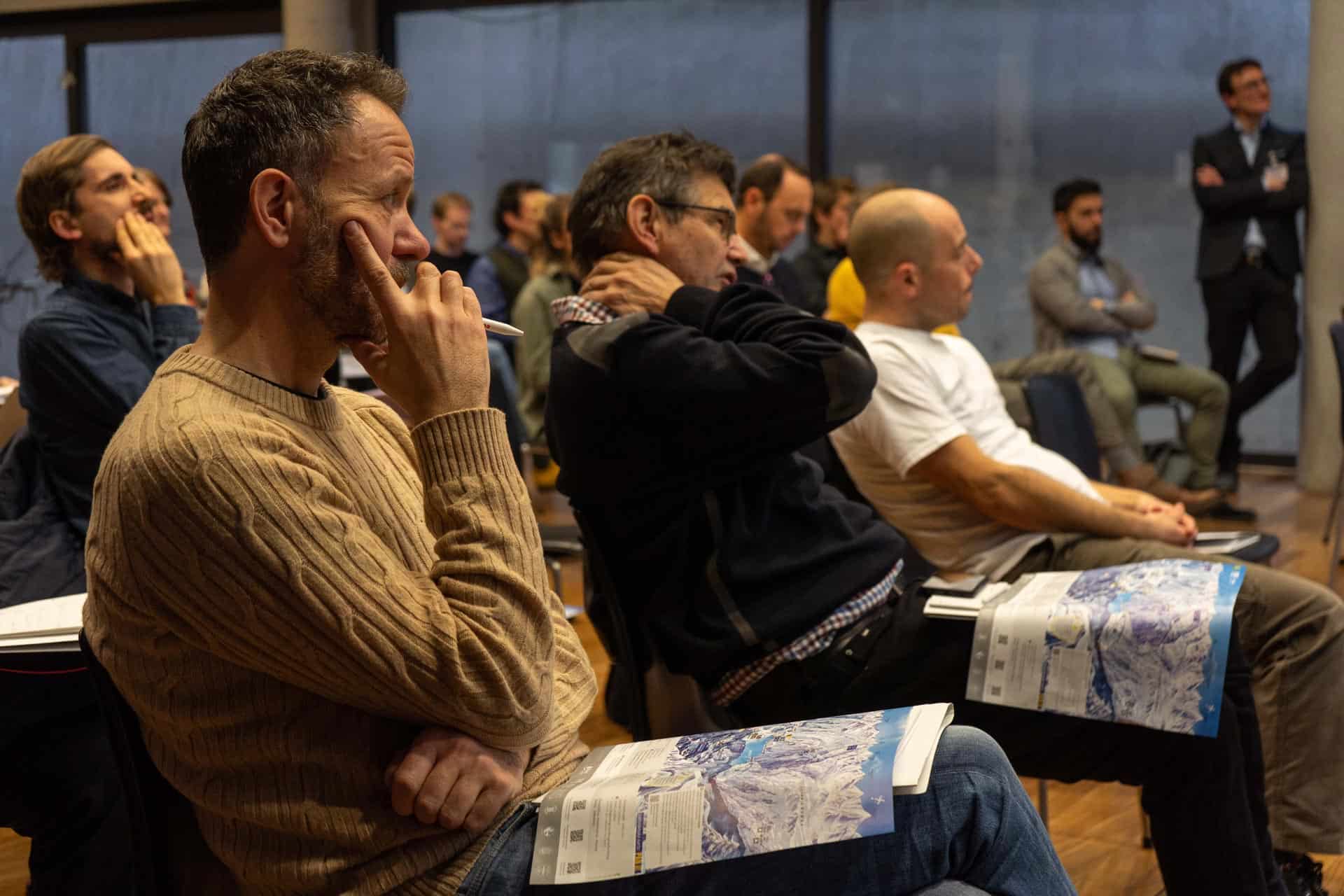Climate change represents a major challenge for the tourism industry. Particularly small medium-altitude snow tourism destinations across the Alpine Space are facing climate change issues, regarding the diminishing snow coverage. Climatic data indicate that this effect will considerably worsen in the future. As such, the project BeyondSnow aims to explore sustainable development pathways and implementable solutions to enhance the resilience of snow tourism destinations to climate change.
Comprehensive climate change adaptation strategies will be developed in a participatory manner within 10 specific pilot working areas, focusing on the improvement of liveability for residents and the attractiveness for tourists. The process of strategy development will include sensitisation, knowledge transfer, and integration of numerous stakeholders. Participation is fundamental to the development of viable transition concepts for climate change adaptation, thus strengthening the resilience of a destination.
Within the framework of the BeyondSnow project, several halfday workshops – co-design laboratories – under the title “Climate.Labs” will take place in the Großer Arber, one of the project’s pilot working areas. Designed and led by the project partner team from the Deggendorf Institute of Technology, European Campus RottalInn with extensive knowledge in the field of participatory processes, the objective of these workshops will be the participatory and implementation-oriented elaboration of a climate change adaptation strategy for the Großer Arber region to strengthen its resilience to climate change, with a distinct focus on winter tourism.
During the first workshop, an internal “kick-off”, the objective of the BeyondSnow project will be presented, the planned activities will be discussed, and the timeframe of the project will be outlined. A core team will be defined and activated to steer the process and its implementation. Projects with similar or parallel objectives that are currently being imple-mented in the region will be “reviewed” and a clear timetable for the next workshops will be determined.
The first workshop will involve about 15 participants, particularly the coor-dinators from the Großer Arber and the responsible persons in the Destination Bavarian Forest.
In the second workshop, collaborative work on the concept will begin. Available analyses and findings will be shared, followed by comparative analyses of other ski resorts and their climate change adaptation strategies. Existing concepts from the Großer Arber region will be presented and ideas for the future in the Großer Arber will be gathered, after which thematic and methodological clustering and priority setting will take place. The second work-shop will be joined by around 15 to 20 participants, including coordinators from the Großer Arber, responsible persons from the Destination Bavarian Forest, funding institutions, and district councils.
The third workshop will focus on deepening the concept while activating the wider public. Also, the opportunities for participation in terms of further ideas and projects will be addressed. This will be followed by a joint completion of the concept, including the concreti-sation of the governance. Regional cooperation and trans-regional networks will be discussed, as will the question of who and how should be involved in the final event. A larger group of participants, namely between 30 and 40 persons, will be invited to the third work-shop – primarily coordinators from the Großer Arber, responsible persons from the Destination Bavarian Forest, funding institutions, mayors, local councillors, associations/relevant institutions, and businesses from the region.
In the final workshop, the concept of climate change adaptation at the Großer Arber will be introduced with the aim of embedding it in the broader public. Between 40 and 50 stake-holders will be involved, comprising not only the mentioned stakeholders but also citizens.
In this way, the participatory approach in BeyondSnow will be enhanced while contributing to the ultimate objective of the project – strengthening the resilience of snow tourism destinations, concretely the Großer Arber, to climate change.



